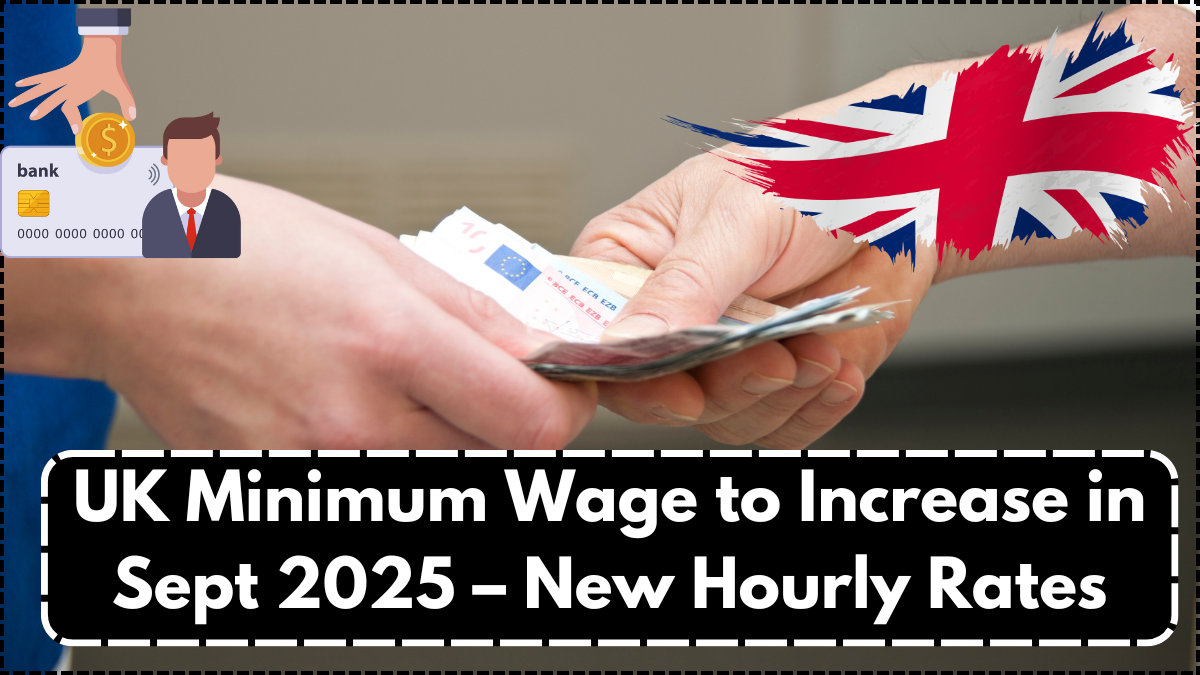The government has officially announced a Minimum wage increase UK coming into effect in September 2025. This update is one of the most significant wage revisions in recent years, designed to help workers cope with rising living costs and economic pressures.
The increase is part of a broader effort to address income inequality and support low-wage earners. By adjusting the hourly rate 2025, the government aims to ease financial strain for workers while balancing the needs of employers and the overall economy.

Why the Minimum wage increase UK is Important
The Minimum wage increase UK is more than just a policy adjustment—it’s a crucial lifeline for millions of workers. With prices for essentials such as groceries, transportation, and utilities climbing, the new wage rates provide some breathing room for low-income households.
The change in the hourly rate 2025 also reflects the government’s commitment to aligning wages with the current cost of living. Advocacy groups have long argued that previous rates were not enough for workers to meet basic needs, and this revision aims to close that gap.
New Hourly Rates from September 2025
The Department for Business and Trade has shared the full breakdown of the Minimum wage increase UK, with changes for different age groups and categories of workers.
| Category | Old Rate (2024) | New Hourly Rate 2025 |
|---|---|---|
| National Living Wage (23+) | £10.50 | £11.10 |
| 21–22 Year Old Rate | £10.00 | £10.60 |
| 18–20 Year Old Rate | £8.80 | £9.30 |
| Apprentice Rate | £5.90 | £6.40 |
This table highlights how the hourly rate 2025 will increase across all categories, providing fairer pay for younger workers and apprentices as well.
How the Minimum wage increase UK Affects Workers and Employers
For workers, the Minimum wage increase UK means higher take-home pay and better ability to manage daily expenses. For employers, it means adjusting payroll budgets to comply with the new hourly rate 2025 while maintaining staffing levels.
Small businesses may face more pressure to balance these costs, but the government is encouraging companies to see the wage increase as an investment in workforce stability and morale.
The Bigger Picture Behind the Wage Hike
The Minimum wage increase UK is also a response to broader economic factors. With inflation moderating but still impacting households, the new hourly rate 2025 is part of a long-term strategy to ensure wages keep up with living costs.
Labour unions and worker advocacy groups have welcomed the change but continue to push for further reviews to make sure wages remain fair in future years. This adjustment signals a step in the right direction toward reducing income inequality.
Conclusion
The Minimum wage increase UK coming in September 2025 is a vital update for workers across the country. By raising the hourly rate 2025, the government is taking steps to ensure that wages better reflect the cost of living. While businesses will need to adapt, the wage increase represents progress toward a fairer and more sustainable economy for everyone involved.
FAQs
What is the new Minimum wage increase UK for 2025?
The National Living Wage for workers aged 23 and above will rise to £11.10 per hour in September 2025.
Will younger workers also benefit from the hourly rate 2025 adjustment?
Yes, all age groups, including apprentices, will see a rise in their hourly rate 2025.
When will the new rates take effect?
The Minimum wage increase UK will take effect starting 1 September 2025.
How will this change affect small businesses?
Employers must comply with the hourly rate 2025 changes, which may require payroll adjustments and budgeting for higher wages.
Will there be further wage reviews after 2025?
Yes, the government typically reviews minimum wage rates annually to ensure they match economic realities.
Click here to know more